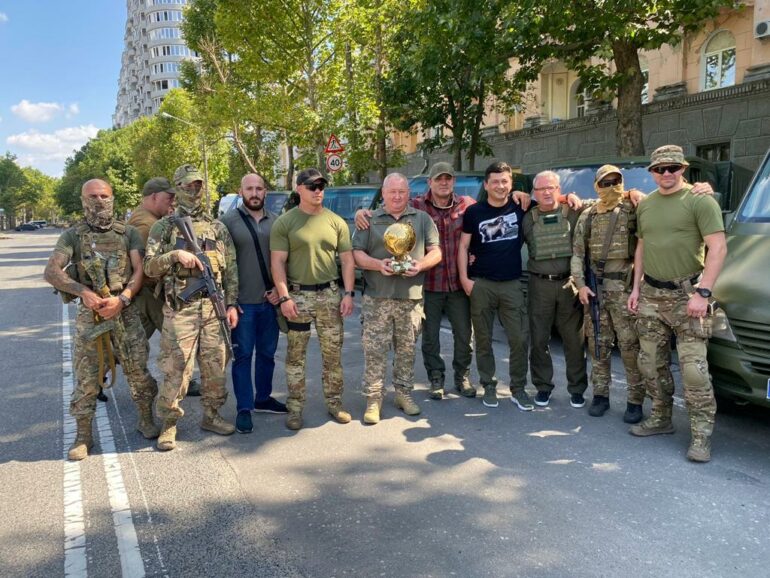Since the start of the Russian invasion, Igor Belanov has been touring the Ukrainian trenches with his Ballon d'Or award, telling football stories to the soldiers in an attempt to lift their mood.
By Emanuel Roșu, Dumitru Garcaliuc
Igor Belanov is one of the most surprising Ballon d'Or winners in the history of the prestigious award. In 1986, he beat Gary Lineker and Emilio Butragueño to follow Michel Platini's "hat trick" in 1983, 1984, and 1985. The rocket forward had won the Cup Winners' Cup with Dynamo Kyiv and enjoyed a quality World Cup in Mexico, helping the Soviet Union top a group that France were also part of and scoring three times against Belgium in the Round of 16. He registered four goals and six assists in the World Cup. Igor Belanov is one of Ukraine's three Ballon d'Or winners alongside Oleh Blokhin and Andriy Shevchenko.
Now 62, Belanov started playing in his native Odesa, one of the jewel cities of the Black Sea coast. He would have never left the place had top football challenges not been called. The striker played under Valeriy Lobanovskyi in the iconic Dynamo Kyiv side that astonished Europe in the 80s, then went to Germany against his will and struggled to adapt to living and playing in Western Europe.
Since the start of the war, Belanov has been touring the trenches with his Ballon d'Or award, telling football stories to the soldiers in an attempt to lift their mood.
How is your life now, Mr Belanov? Can you describe a normal day in your life?
What can I tell you? We're at war. I am working inside the Ukrainian FA with my former teammates Oleh Blokhin and Anatoliy Demyanenko. But our focus goes to helping those who are defendi...



